When I visualize a positive future for the world, it’s networked, interconnected, creative, and emergent. It’s collaborative and aware of its history. It looks like a wiki.
Like podcasting has, wikis (beyond Wikipedia) may still prove to be a technology that saw a burst of nerdly excitement, then a long period of obscurity, and then a break into the mainstream. I’m hoping so.
The first wiki was created by Ward Cunningham in Portland, Oregon in 1995. It’s still up online! Cunningham has now been working on something called Federated Wiki, a very cool project that celebrated its 7th birthday this week. Wikipedia was launched in 2001 and in an era of rapidly increasing information warfare, there are few communities as experienced and prepared to help as the community of Wikipedia. Google, Facebook, and all of us should give it a lot more money.
One year ago this Summer, I was reading that first wiki, WikiWikiWeb, and thought – I want a wiki of my own! And so my private, personal, mobile-responsive wiki was born. (I use PMWiki software unloaded to my web host account.) It’s now my second-most visited site on the web (after Twitter) and I adore it so much! I put all my notes from reading in there, my notes from meetings, personal brainstorms, lots of things. I LOVE MY WIKI! I usually edit and read it on my phone. I love my “all recent pages” page, I love my “randomized list of 3 other pages” page.
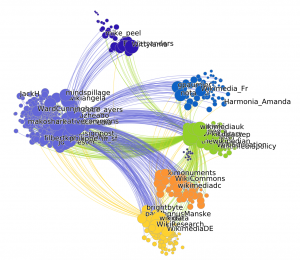
I was talking to internet pioneer Howard Rheinghold about wikis on Twitter today, just because I noticed that we had discussed wikis on Twitter ten years ago in 2008! I brought the conversation back up, some other people joined in, we talked about what we needed today for a good wiki UI, and why it seems like wiki software development has slowed (Howard guesses Google Sites and Docs have filled a lot of the needs). It was great fun.
In celebration of the larger wiki world, here is a network map of 721 wiki experts, thought leaders, organizations, and more on Twitter. (zoomed in details below, graphs made by Little Bird, of Sprinklr) The accounts are the nodes, and the lines are a sample of the follow relationships between them. Sub-communities have formed where, for example, the community colored green was discovered by noticing that these people all follow each other more than they follow people in the yellow community. Flavors of wiki community – try them all!
Also notable, back in 2008 when Howard and I were talking on Twitter about wikis, only 123 out of 721 (17%) of these wiki community leaders had created their Twitter accounts yet! Ten years later, Twitter and at least Wikipedia are powerful, widely used platforms enabling public discourse. May many more wikis flourish in the coming years. If you’d like some more inspiration, here are some people and organizations that are right in the thick of it! Here are 500 of them in an easy-to-explore Twitter list.
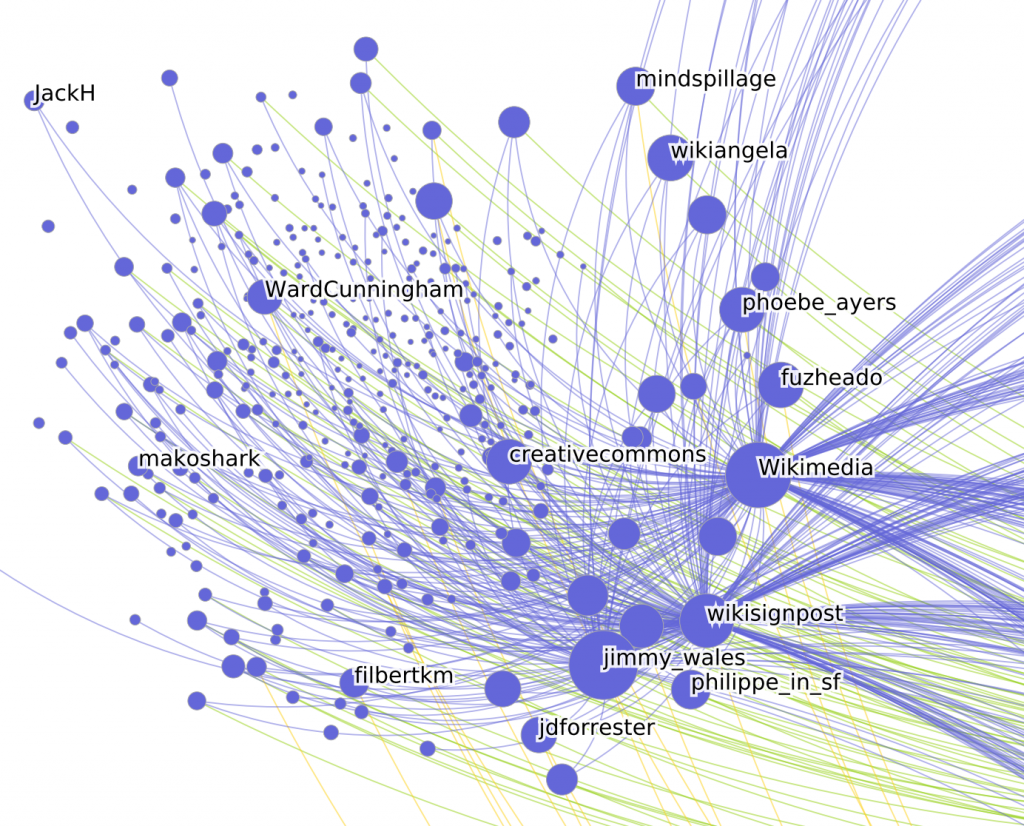
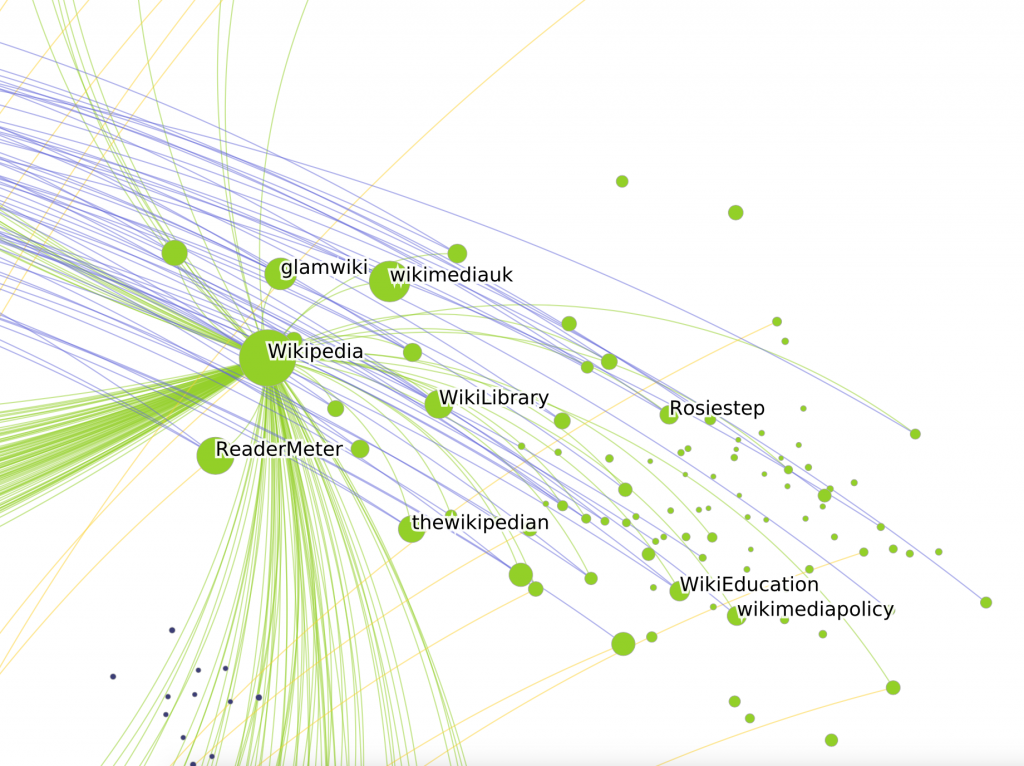
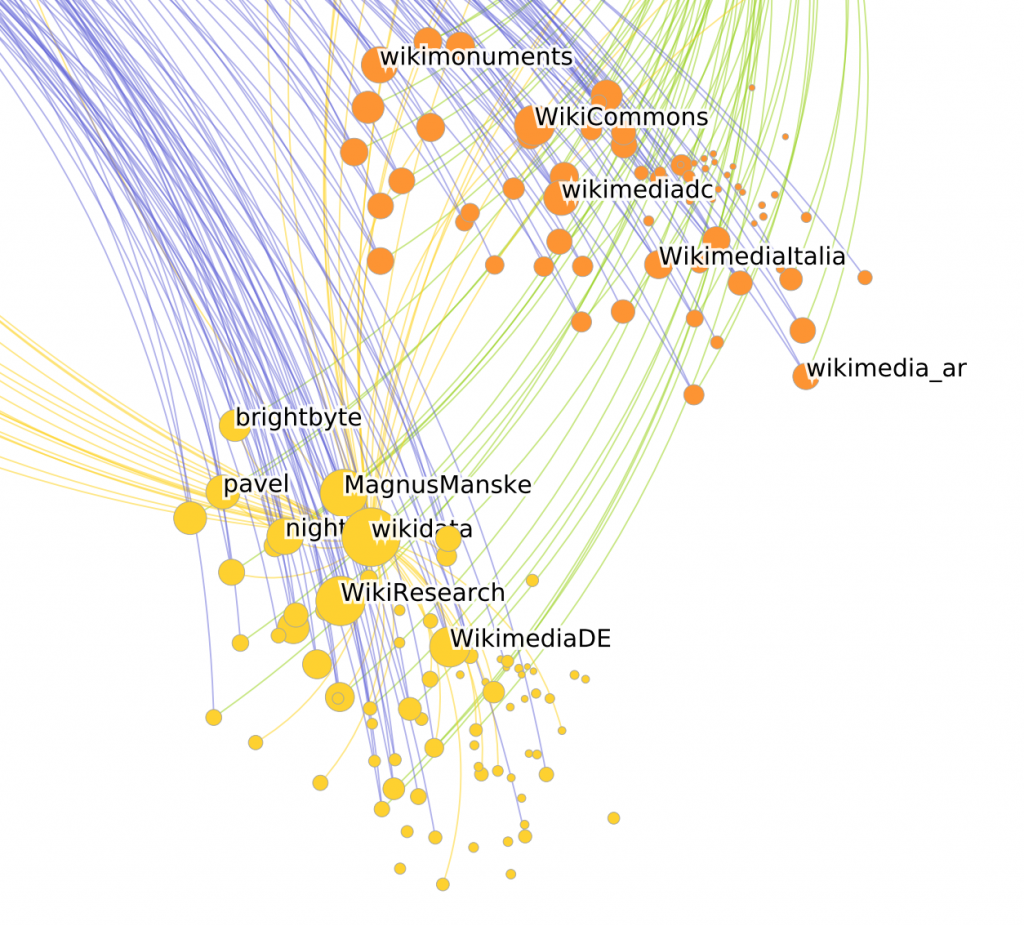
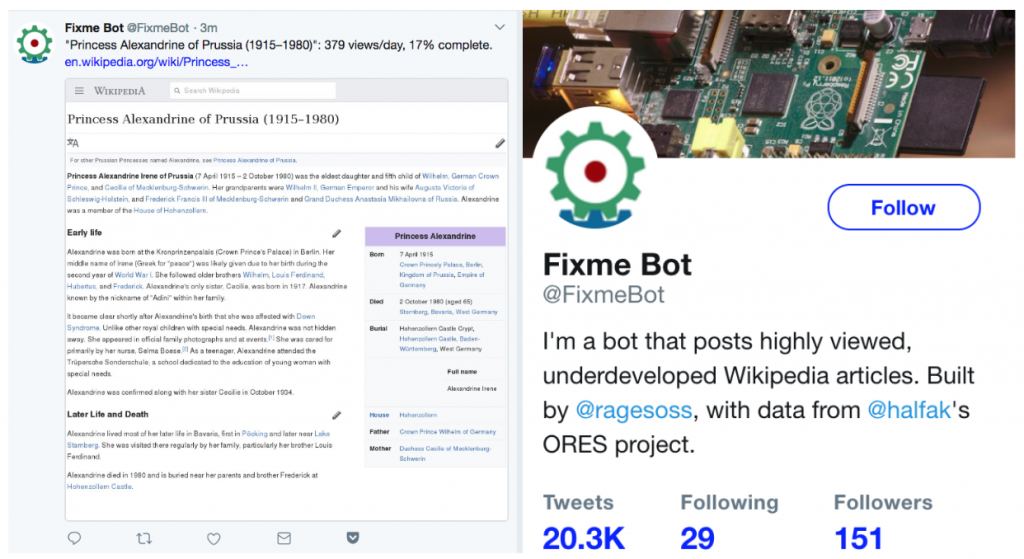
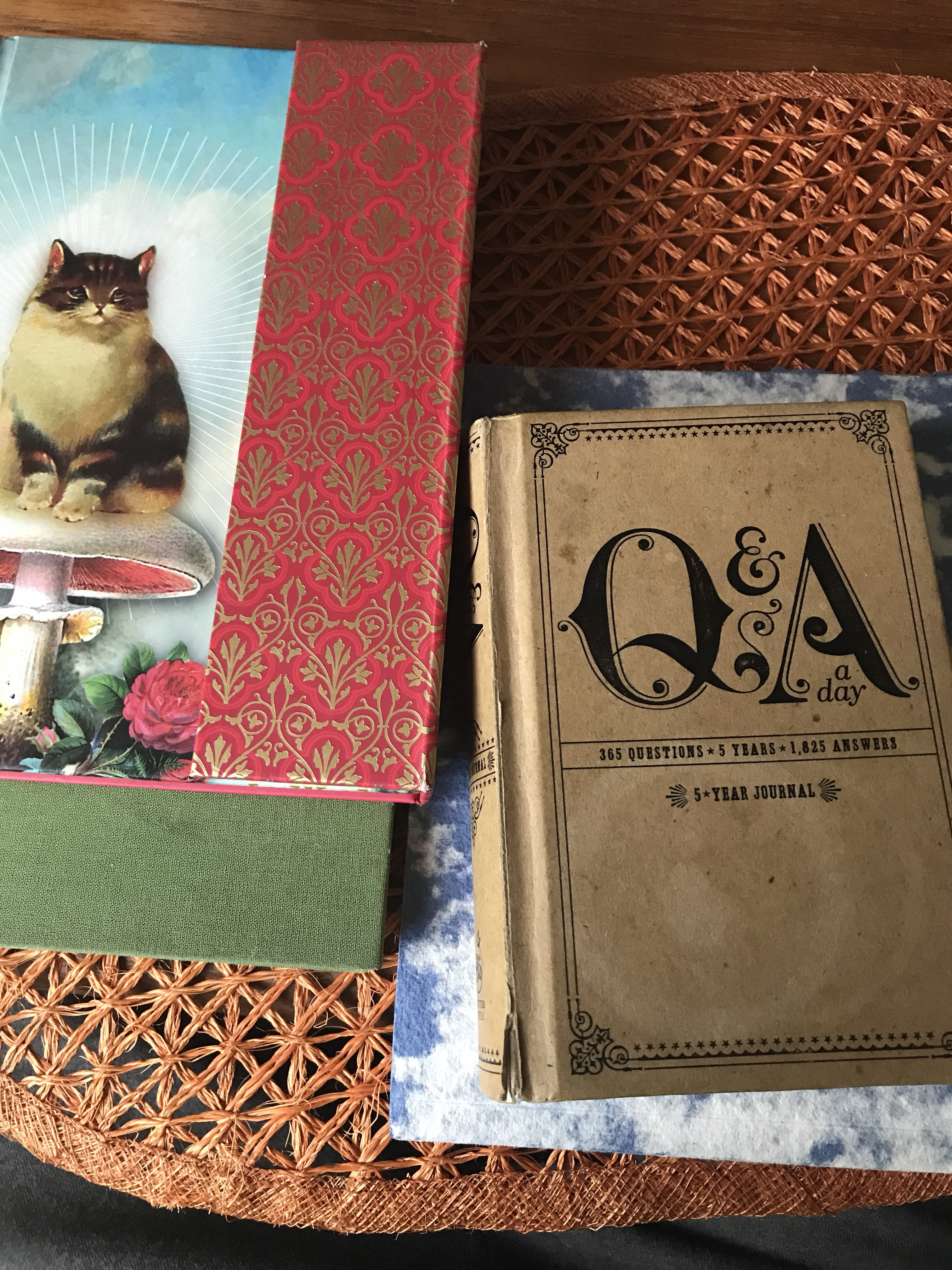 That ability to better understand the present in context of the past is one of the many things that’s valuable about old notes. I’ve thought for some time that if I was going to start another company right now, it might focus on re-surfacing new value from old notes. I love thinking about how old wisdom or information sheds new light on new circumstances. That’s a phenomenon I’d like to think about a lot more. For now, some specific examples.
That ability to better understand the present in context of the past is one of the many things that’s valuable about old notes. I’ve thought for some time that if I was going to start another company right now, it might focus on re-surfacing new value from old notes. I love thinking about how old wisdom or information sheds new light on new circumstances. That’s a phenomenon I’d like to think about a lot more. For now, some specific examples.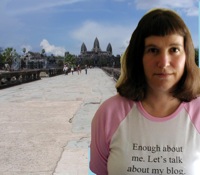
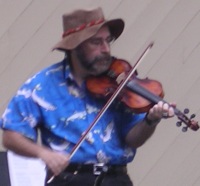 Marshall
Marshall 
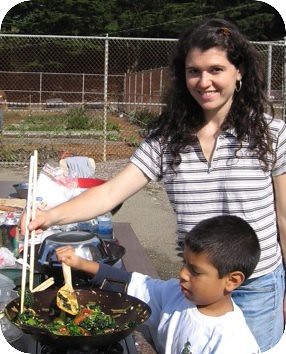 I just posted two new interviews over at NetSquared. The first was with
I just posted two new interviews over at NetSquared. The first was with  The second was
The second was